Joy Can Save Us

Joy is the gift I would give everyone across the globe this holiday season if I could, but I can’t. The gift I can give, instead, is the reminder that joy is something inherent in us that can be tapped at will.
In my new book, The EarthStar Solution, I raise this point in subtle ways. My character, Kaye, has “more than I could ever need but not what I want: goodnight wishes, arms to hugs me, the smile of a best friend.” Over the course of the book, she challenges the material lifestyle that her father has given her and reaches for the sense of joy and well-being that her mother exuded.
I included it in the book because, naive as it may sound, joy could save us.

Many will disagree with this. Years ago, I would have too. After my first-grade teacher broke my spirit into smithereens, I became depressed and stayed that way for decades. An emptiness haunted me, one I wanted to fill but didn’t know how.
Yet, there were clues along the way such as that big news splash decades ago about Norman Cousins who recovered from a debilitating connective tissue disease by laughing at funny movies.

Also, a 1985 best-selling book called The City of Joy described the jubilation that could erupt inside a slum outside of Calcutta despite the most extreme deprivation imaginable.

I realized, laughter was indeed powerful, and if the sickest and poorest could access it, why was I so glum?
Other clues arrived. I remembered an old song from the musical The King and I. “Whistle a happy tune,” Anna sang to her son, “And ev'ry single time, the happiness in the tune convinces me that I'm not afraid.”

Later at a conference, I listened to a man who exhorted us to “just be happy.” He had been a very angry man until he realized he had a choice to be a happy person instead.
Could I just choose to be happy? Could I whistle my own happy tune?
These ideas percolated in me as I stumbled onto a magazine in the 90s put out by Peggy Joy Jenkins called The Joyful Child Journal whose tagline was: joy is an inside job.
Was there something in me that could spark joy? I wanted that badly. I had grown weary of the gloom.
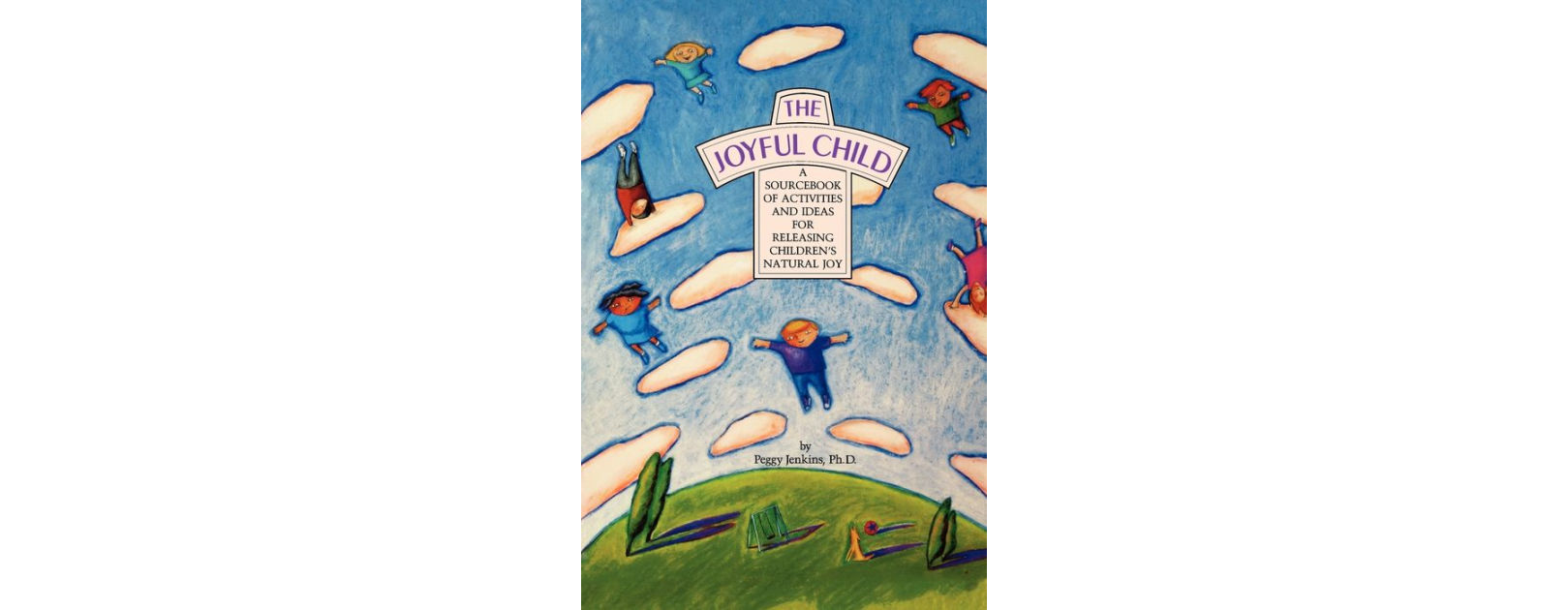
The final straw was the day-to-day of living with my husband—always a cheerful guy. How could he be so happy and not me? That did it. My stubbornness ignited. I decided I was going to put some joy in me somehow, so I just started imagining it, drawing on memories of joyful moments. Planting a smile on my face, I pretended to feel happy inside, filling that empty space with a good feeling. And then I did it again, and again. It became a nighttime meditation before falling asleep.
Nothing magical happened at first, and I forgot about it for long periods of time, but my tenacity wouldn’t let me forget forever. I came back to it repeatedly until it became a more regular practice. Now, it’s pretty much a constant in my life—nestling under the covers, savoring a cozy, joyful warmth deep within.
I still get angry, sad, fearful, and glum, especially about the climate crisis, but I have a tool to reach for, so I don’t get stuck too long in the negative.
That is the true power of conjuring your joy. Even when you feel powerless to change the world, it gives you something you can use to get through it, and so with plenty of persistence under my belt, I have taught myself how to “just be happy.”
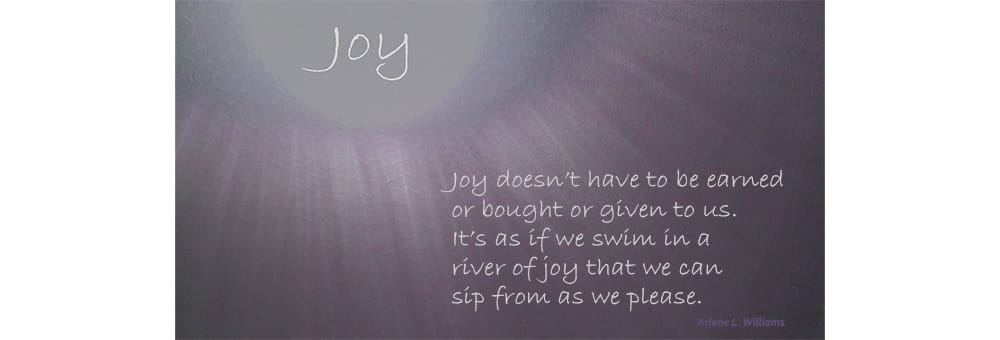
Joy doesn’t have to be earned or bought or given to us. It’s as if we swim in a river of joy that we can sip from as we please. We don’t even have to call it joy. It could be any word—love, kindness, contentment, serenity, satisfaction—because it's really about the good feeling. I prefer to just focus on that feeling, but there are plenty of strategies to generate this sense of well-being such as gratitude journals, positive reappraisal, mindfulness, and relaxation.
Life, in general, doesn’t teach us this.
We are taught through our cultural messaging—peer influences, storytelling, and especially advertising—that we must find happiness outside of ourselves by buying something, or accomplishing something, or if that doesn’t work, through food or other substances. Yet these things don’t bring us the happiness we crave.
Dr. Laurie Santos of Yale teaches a free online course called The Science of Well-being. One term from the course that I found very useful was miswanting: the act of being mistaken about what and how much you will like something in the future. Research shows that, when we obtain those external things we seek, we often end up no happier than if we hadn't—once our basic needs for survival have been met.

Harvard psychologist Dan Gilbert explains in a TED Talk that this is because, no matter the outcome, we have the ability to synthesize our own happiness, which can be as real as any happiness generated by getting what we want. It’s a remarkable validation for my practice of intentionally creating my own joy. I had been practicing what his research found.

Right now, this is crucial for humanity to understand because, unfortunately, we believe money is the greatest source of happiness, yet that quest for money and profit has created a world on the cusp of becoming the hottest in more than a hundred thousand years. Hopefully, if we stop pursuing unlimited wealth, luxury, and glamour in the search for happiness, we might consume less, destroy less.
We need a new vision of what we aspire to in life.
Instead of idolizing maximum material wealth, which has spawned resource depletion, climate catastrophe, and species extinction, we can—by acting as role models, through storytelling, with peer-to-peer sharing—spread the word that the happiness we all seek comes from inside our own hearts. Tapping into intrinsic joy, instead of being on the endless treadmill toward success, might enable a more sustainable economy to develop as people realize that gathering huge piles of money is meaningless or at least not worth trashing our livable climate, one our children will depend on to survive.
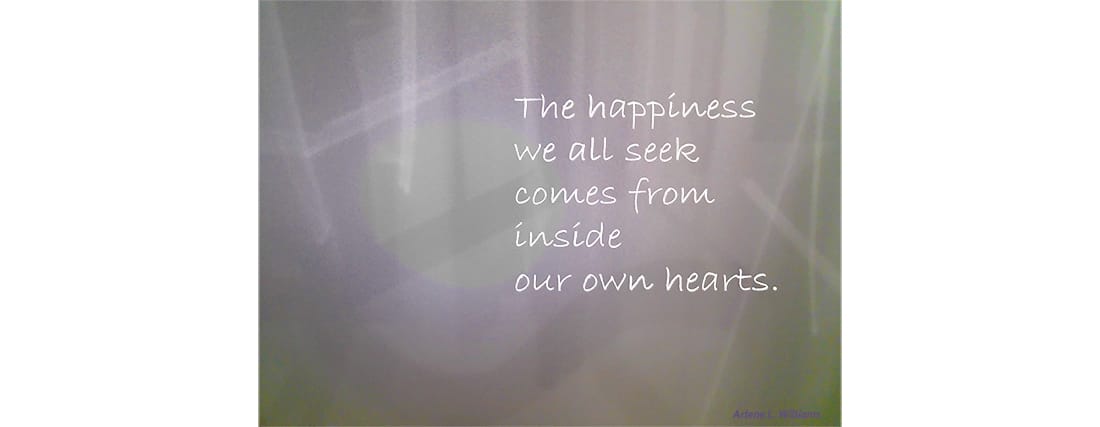
So tomorrow as you start your day, remember that old quote that may (or may not) be attributed to Abraham Lincoln:
"Folks are usually about as happy as they make up their minds to be."
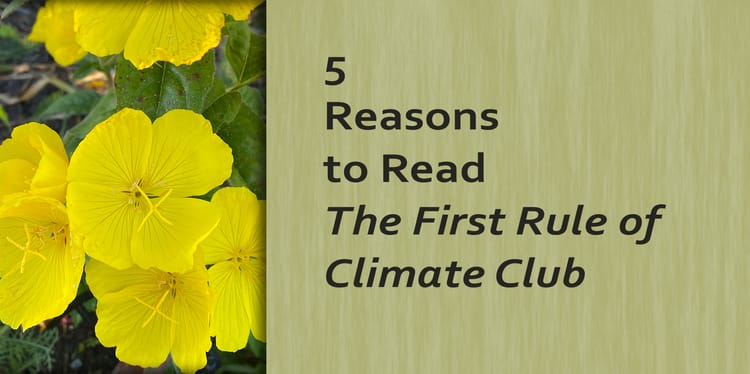
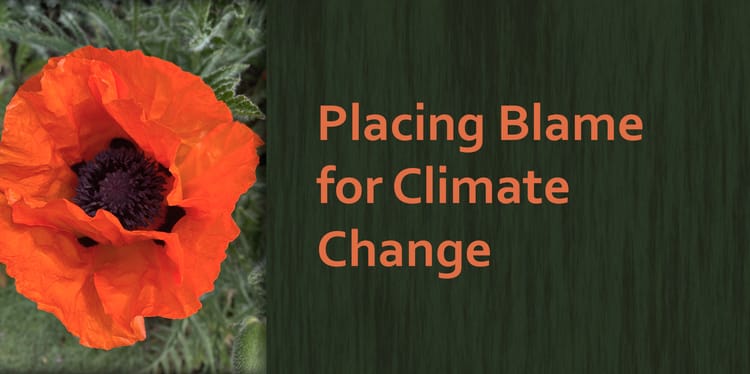
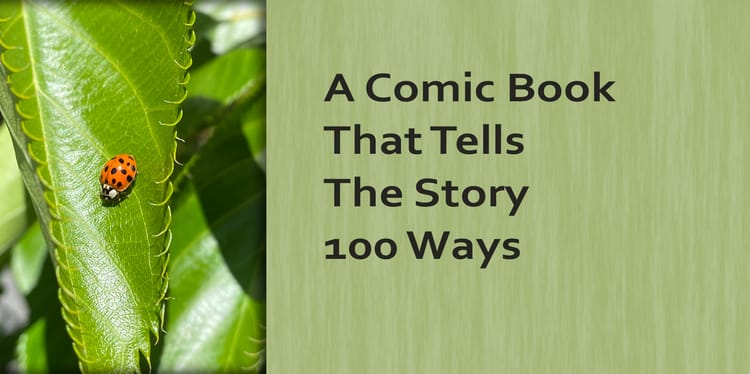


Member discussion